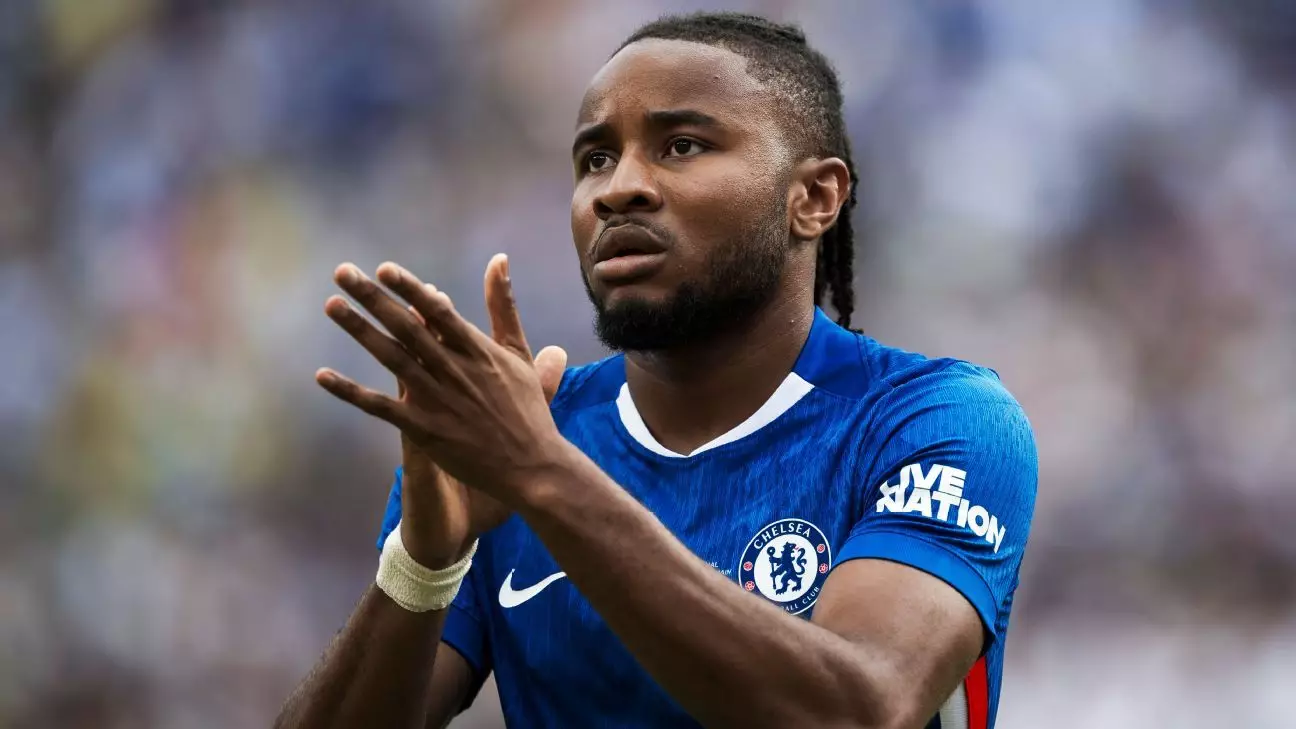Christopher Nkunku’s impending transfer to AC Milan marks a pivotal turning point in a tumultuous chapter of his career. Once heralded as a promising goal scorer when acquired from RB Leipzig for a substantial €52 million, his tenure at Chelsea has yet to meet expectations. An untimely knee injury during pre-season hampered his debut, and subsequent struggles to secure regular playing time under coach Enzo Maresca further dimmed his potential. Contrasting with initial optimism, Nkunku’s limited appearances, primarily in cup competitions and Europa Conference League matches, reveal the harsh reality of a player jaded by injuries and stiff competition.
The decision to move to Serie A doesn’t merely serve as a fresh start; it symbolizes a strategic recalibration for Nkunku’s career. For AC Milan, this signing offers more than just a temporary fix in attack—it signifies a calculated move towards rejuvenating their offensive options with a player possessing undeniable talent, albeit one that has been fraught with setbacks. Milan is betting on Nkunku’s potential to flourish in a league where tactical fluidity and attacking prowess often translate better for reinvigorated talent. For Nkunku himself, the transfer stipulates a chance to escape the shadow of injury and underperformance, and to reimagine his career trajectory in a competitive and historically prestigious league.
Financial and Strategic Implications for the Clubs Involved
AC Milan’s investment of €42 million reflects a bold assessment of Nkunku’s long-term upside, especially considering his injury history and inconsistent form at Chelsea. The agreement also includes a layered component—Chelsea will retain a percentage of any future transfer, illustrating a strategic attempt to retain some financial stake in Nkunku’s potential resale value. Such clauses are increasingly common, allowing clubs to hedge their bets on player development and recovery.
Conversely, Chelsea’s decision to offload Nkunku underscores a broader strategic purge, clearing the decks to focus on other transfer targets. With the Blues reportedly close to securing Alejandro Garnacho for a hefty £40 million and negotiations ongoing for Xavi Simons, Chelsea aims to fine-tune their squad, shedding players who are surplus or no longer fitting the tactical plan. This focus on flexibility demonstrates their intent to stay reactive in an increasingly competitive transfer market.
Notably, Tottenham’s emerging interest in Xavi Simons points to a shifting landscape amongst Premier League giants, while Chelsea’s cautious stance on meeting Leipzig’s €70 million valuation suggests a disciplined approach to transfer spending. The market dynamics reflect a delicate balancing act: assembling quality talent without overextending financially.
An Indicator of Larger Trends in Modern Football
The Nkunku move encapsulates more than just a player transfer; it exemplifies the evolving strategies of top European clubs. Teams are increasingly willing to gamble on players with injury histories or inconsistent form if the potential rewards justify the risks. Meanwhile, the proliferation of transfer clauses like future sales percentages illustrates a sophisticated understanding of player valuation, enhancing club revenues in case of breakout performances.
AC Milan’s willingness to invest heavily in a player of Nkunku’s profile also underscores their broader ambition—aiming to challenge the traditional dominance of Serie A giants and re-establish their status on the European stage. As clubs refine their recruitment strategies, it becomes clear that the future of football lies in strategic patience, risk management, and a willingness to embrace uncertainties for long-term gains.
This transfer saga signals that football today is as much about intelligent investments and tactical shuffles as it is about immediate results. Nkunku’s journey from Chelsea to Milan is a vivid testament to the fact that sometimes, setbacks are merely setups for a comeback—if approached with the right vision and confidence.

